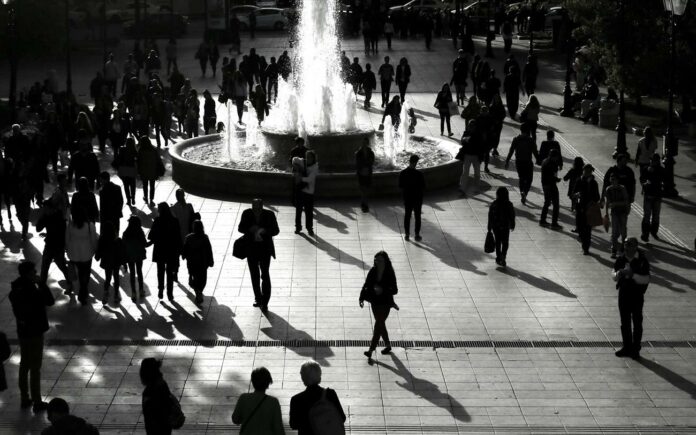Insecurity, introversion and mistrust are increasingly gripping Greek citizens, a new World Values Survey finds, the first time the specific survey – conducted since 1981 – also included Greece.
The inaugural WVS for Greece was organized by the diaNEOsis, an Athens-based research and policy institute, in cooperation with the National Center of Social Research (EΚΚΕ). The aim of the survey is to chart the development and transformation of societies’ basic values and citizens’ attitudes.
Specifically for Greece, results showed:
– A majority (50 percent and over) of Greek citizens trust only five institutions, namely, universities, the armed forces, police, the Church and the judicial system.
– Nine out of 10 respondents of the survey in Greece disagree with the statement that “most people are worthy of trust”.
– Sixty-three percent of respondents consider that society must improve gradually with reforms, while the remaining one-third consider that voters are essentially “bribed”.
– One in three respondents in the survey in Greece declared they would not want a homosexual as a neighbor; one in four doesn’t want migrants as neighbors, and one in five doesn’t want a neighbor who follows another religion.
– One in five respondents said they worry over the possibility of a civil war; two out of five worrying about a terrorist attack and one in three over the prospect of a military conflict with another country.
– One in 10 respondents said they have fallen victim to a crime over the past year; one in three said their neighborhood has witnessed “many” or “very many” thefts.
Based on the survey, 29 percent of Greek citizens are concerned over whether they will be able to provide their children with a good education; one in six respondents, between the ages of 30 and 49, are concerned that they will lose their job, or that they will not find work.
Roughly seven out of 10 respondents said they are very or sufficiently happy – 83 percent for young adults; 80 percent said they enjoyed good or very good health.
Moreover, 81.4 of respondents in Greece said they were religious; 21 percent agreed with the idea that when science and religion clash, the latter is always right.
Roughly half of respondents assessed that third country migrants have a negative effect on the country’s development; 64 percent of respondents in Greece consider that immigration increases the risk of terrorism, and 63.5 percent consider that immigration to the country increases unemployment.














